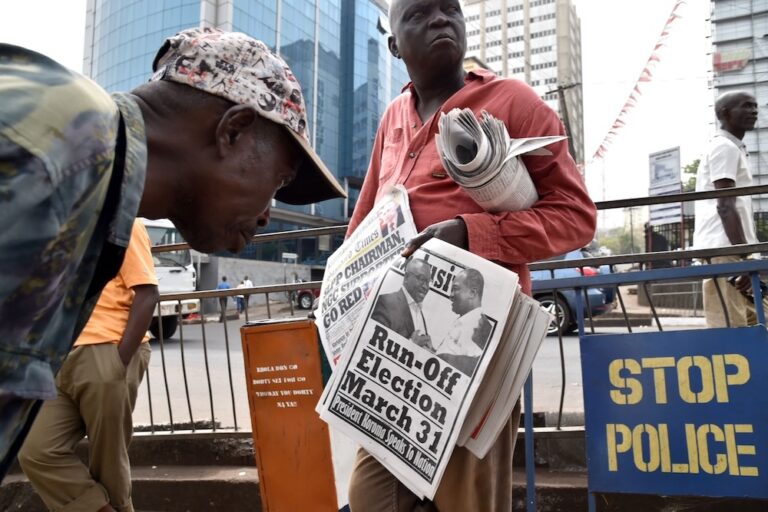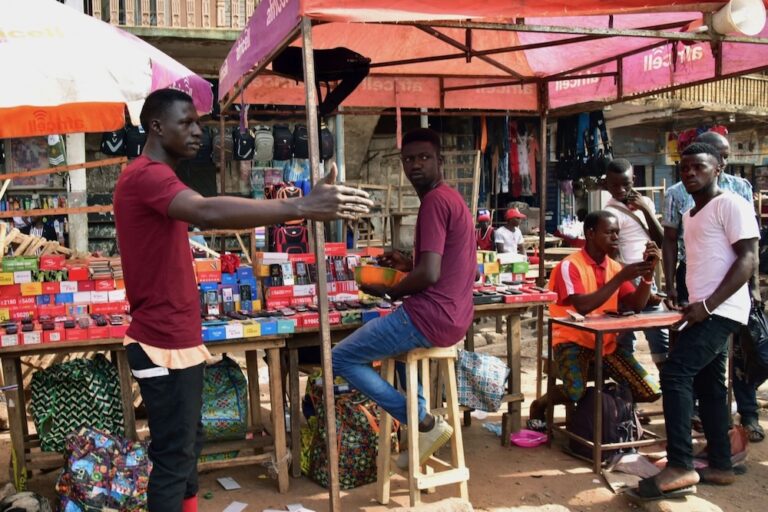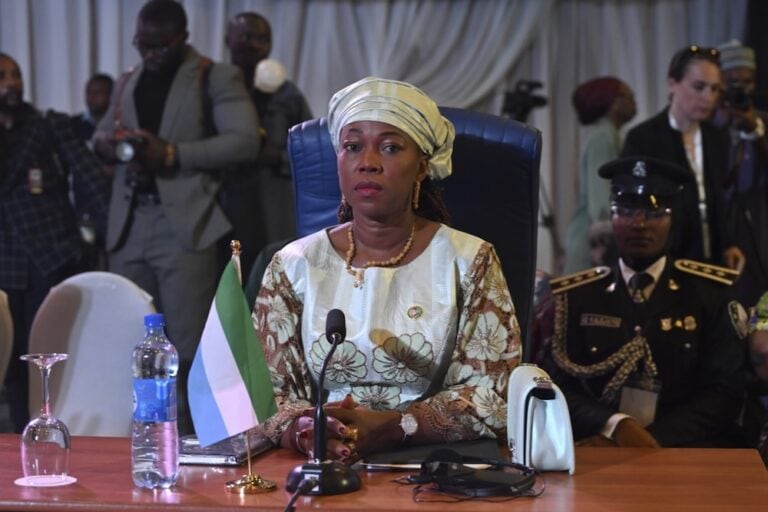(CPJ/IFEX) – In a 6 October 2004 letter to President Ahmad Tejan Kabbah, CPJ condemned the imprisonment of Paul Kamara, editor and publisher of “For Di People” newspaper. On 5 October, Kamara was sentenced to two years in prison stemming from October 2003 articles that criticized the president. The court found Kamara guilty on two […]
(CPJ/IFEX) – In a 6 October 2004 letter to President Ahmad Tejan Kabbah, CPJ condemned the imprisonment of Paul Kamara, editor and publisher of “For Di People” newspaper. On 5 October, Kamara was sentenced to two years in prison stemming from October 2003 articles that criticized the president.
The court found Kamara guilty on two counts of “seditious libel” under the 1965 Public Order Act. The journalist was taken into custody and transferred to the Pademba Road Prison in the capital, Freetown. Kamara’s lawyer, J.O.D. Cole, told CPJ he plans to appeal.
The judge also recommended a six-month ban on “For Di People”. According to local sources, Sierra Leone’s media regulatory body, the Independent Media Commission, is expected to rule on the recommendation.
Under the act, newspaper vendors, printers, and publishers may also be held liable in a libel case. Brima Sesay, chief printer of the John Love Printing Press, which prints the paper, was found guilty of “printing seditious libel” and sentenced to six months jail or a fine of Le10,000 (about US$4), local sources said. Sesay paid the fine and was not imprisoned. Printing press owner Lovette Charles and manager Joseph Charles were acquitted.
The verdicts stemmed from articles that detailed a 1967 Commission of Inquiry into fraud allegations at the Sierra Leone Produce Marketing Board at a time when President Kabbah helped oversee the board. “For Di People” also reprinted the commission’s report in installments.
Kamara has been targeted with criminal libel in the past. He served a six-month prison sentence after being convicted of criminal libel in November 2002 for defaming a local judge (see IFEX alerts of 11 March 2003 and 14 November 2002). On 9 October 2003, a court ordered him to pay Le61 million (US$24,900) in damages and costs following a civil suit in the same case. When he failed to pay, police seized the newspaper’s equipment and some of Kamara’s personal assets. “For Di People” was subsequently unable to publish for about a month, according to a source at the paper.
According to CPJ, the prosecution of this new case is deeply troubling because it violates the fundamental principles of free expression. In a democracy, political leaders such as President Kabbah must be subject to public scrutiny and should enjoy no special protection from criticism.
Nor should journalists be jailed for what they write. That is particularly true in a case such as this in which issues of public interest have been raised. Criminal penalties for press offenses stifle free expression and run directly counter to democratic principles.
Furthermore, the prospect of censoring “For Di People”, as recommended by the court, is deeply troubling. CPJ urged the president to publicly oppose any attempt at censoring the press.


